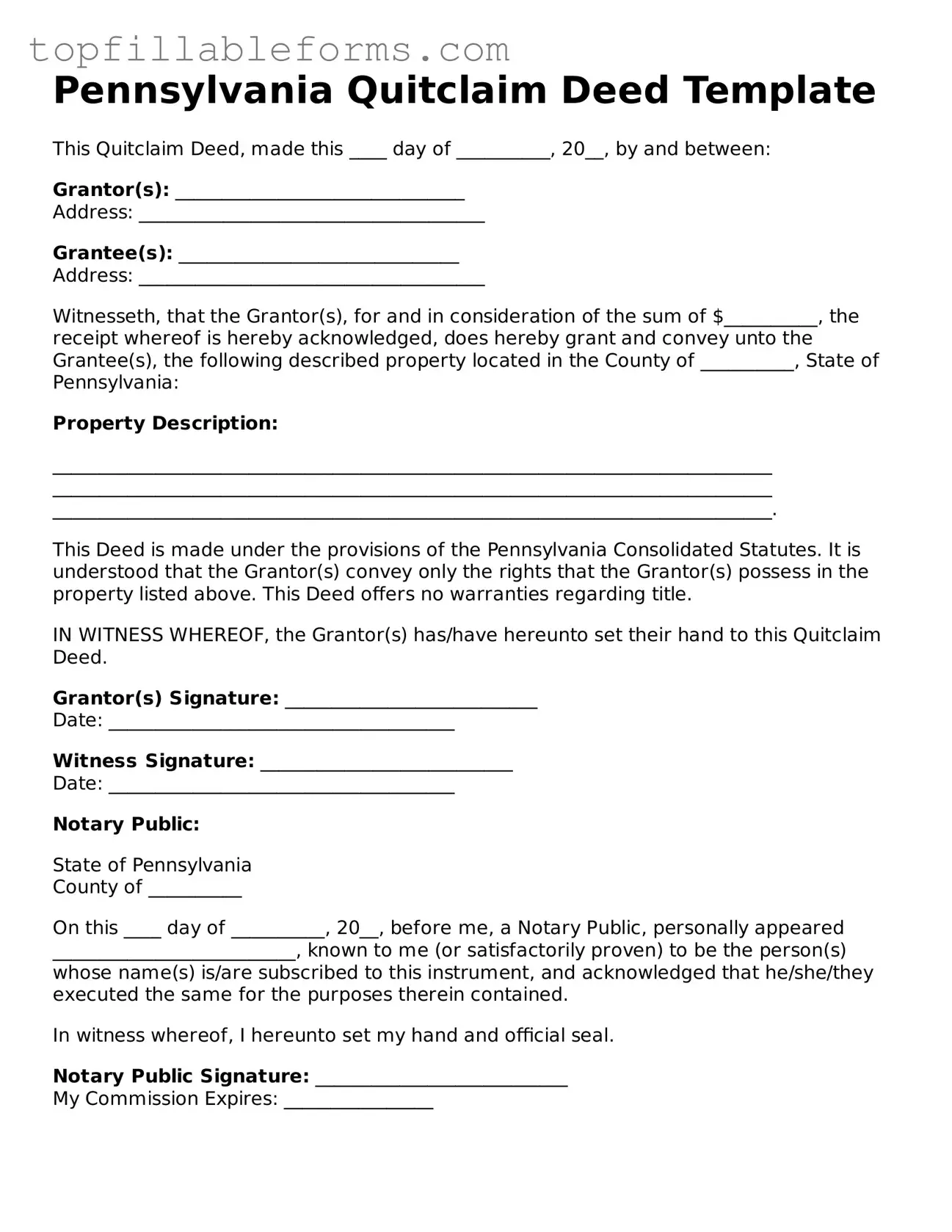Attorney-Verified Quitclaim Deed Template for Pennsylvania
A Quitclaim Deed is a legal document used to transfer ownership of real estate from one party to another without any warranties or guarantees regarding the property title. In Pennsylvania, this form serves as a straightforward method for individuals to convey their interest in a property, often used among family members or in situations where the seller does not wish to provide assurances about the title. Understanding the implications and processes involved in utilizing a Quitclaim Deed can help ensure a smooth transfer of property rights.
Open Quitclaim Deed Editor Here

Attorney-Verified Quitclaim Deed Template for Pennsylvania
Open Quitclaim Deed Editor Here
Finish the form now and be done
Finish your Quitclaim Deed online by editing, saving, and downloading fast.
Open Quitclaim Deed Editor Here
or
▼ PDF File
